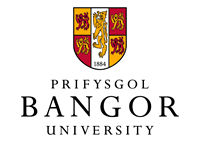Dr S Middleburgh
No more applications being accepted
Funded PhD Project (UK Students Only)
About the Project
Research Masters
Energy from nuclear fusion is the result of the fusion of light atoms such as the isotopes of hydrogen - deuterium (2H) and tritium (3H). The most favoured fusion reaction is the so-called D-T reaction which fuses 2H (D) and 3H (T) to produce 4He and a neutron (plus a staggering 17.6 MeV of kinetic energy). The D-D reaction fuses 2H and 2H atoms and releases 3.3/4.0 MeV, which although still remarkably high, is considerably less than the D-T reaction.
The D-T fusion reaction looks to be the most likely basis of future fusion power stations but 3H is not a natural isotope of hydrogen, unlike 2H, which makes up 0.02% of all hydrogen atoms which means that to all intent and purposes there is an infinite supply of deuterium. However, 3H does not occur in nature but can be made by neutron irradiation of lithium (a natural material with an infinite supply). The supply of sufficient quantities of tritium is therefore essential to the delivery of a successful fusion energy programme. Current thinking is for fusion reactors to “breed” their own tritium using lithium breeding blankets, but this not only complicates the design of the power plants, but also adversely affects safety and security.
To simplify the design and operation of fusion power plants and to minimise 3H inventories, alternative means of producing 3H are required. This project will investigate alternative methods for the production of 3H to see if it is feasible to produce 3H fuel on the required scale at facilities remote from the fusion power stations.
How to Apply
Applicants with backgrounds in engineering, physics, chemistry or related subjects are encouraged to apply.
Project start date: January 2021
Please apply by sending a CV and covering letter to Dr. Simon Middleburgh ([Email Address Removed]) and cc to Penny Dowdney ([Email Address Removed]).
Funding Notes
Knowledge Economy Skills Scholarships (KESS 2) is a pan-Wales higher level skills initiative led by Bangor University on behalf of the HE sector in Wales. It is part funded by the Welsh Government’s European Social Fund (ESF) convergence programme for West Wales and the Valleys.
Due to ESF funding, eligibility restrictions apply to this scholarship. To be eligible, the successful candidate will need to be resident in the Convergence Area of Wales on University registration, and must have the right to work in the region on qualification.

 Continue with Facebook
Continue with Facebook

